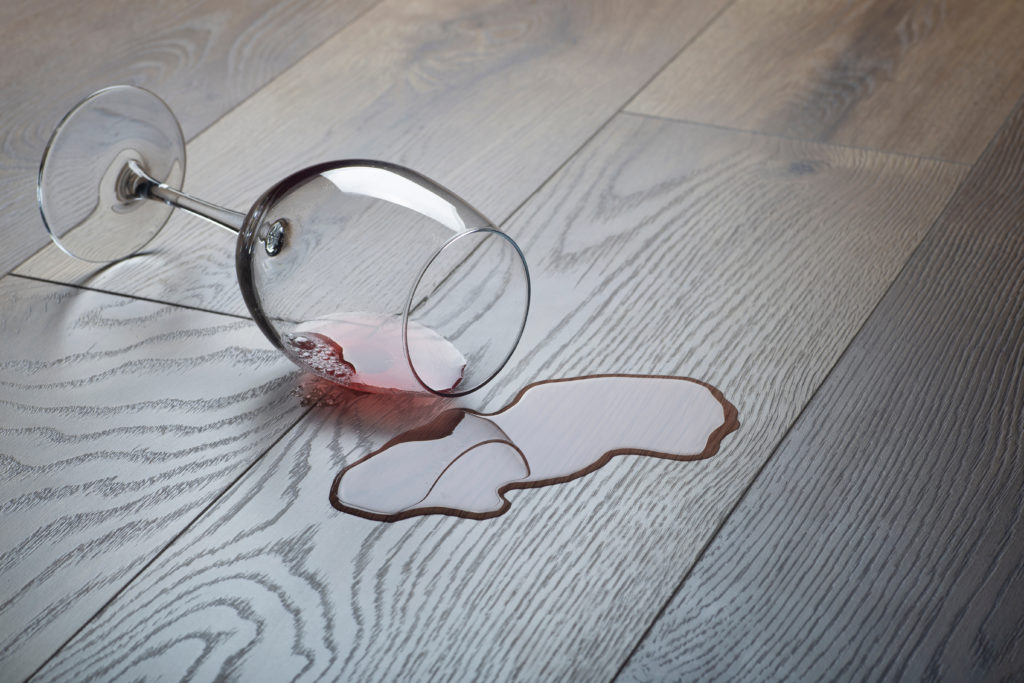Waterproof Vinyl Flooring: The Ultimate Guide

Waterproof vinyl flooring is fast becoming one of the most popular choices for both residential and commercial spaces. Its combination of durability, affordability, and resistance to moisture makes it a great option for high-traffic areas and places prone to spills. This guide will help you understand everything you need to know about waterproof vinyl flooring, from its benefits to installation, maintenance, and frequently asked questions.
What is Waterproof Vinyl Flooring?
Waterproof vinyl flooring is a type of synthetic flooring that mimics the look of natural materials like wood, stone, or ceramic but comes with added benefits of water resistance and durability. Unlike traditional vinyl, which can warp or deteriorate when exposed to water for extended periods, waterproof vinyl flooring is designed to resist moisture damage, making it an excellent choice for areas prone to spills, humidity, or even floods.
Types of Waterproof Vinyl Flooring
There are several types of waterproof vinyl flooring, each designed for different applications and aesthetic preferences. Let’s explore the most common options:
Luxury Vinyl Plank (LVP)
Luxury Vinyl Plank (LVP) is a popular option that mimics the look and feel of hardwood flooring. It’s made with multiple layers, including a protective wear layer, a printed image layer (which resembles real wood), and a waterproof core. LVP is not only waterproof but also extremely durable and easy to install.
Luxury Vinyl Tile (LVT)
Luxury Vinyl Tile (LVT) offers the same waterproof features as LVP but comes in tiles instead of planks. These tiles replicate materials such as stone, ceramic, or porcelain, providing the look of high-end natural flooring without the maintenance or price tag. LVT is an ideal option for bathrooms, kitchens, or anywhere you’d typically install tiles.
Rigid Core Vinyl Flooring
Rigid core vinyl flooring has a more solid construction than traditional vinyl, making it even more durable. It comes in two main types: Stone Plastic Composite (SPC) and Wood Plastic Composite (WPC). Both options are waterproof, but SPC is denser and more impact-resistant, while WPC offers slightly more cushioning for a comfortable underfoot feel.
Benefits of Waterproof Vinyl Flooring
Waterproof vinyl flooring has a wide range of benefits, making it an attractive option for homeowners, landlords, and business owners alike.
Water Resistance
The most obvious advantage is its resistance to water. Whether you’re dealing with a spill in the kitchen, moisture in the bathroom, or even basement flooding, waterproof vinyl flooring won’t warp, swell, or suffer damage like wood or laminate flooring might.
Durability
Waterproof vinyl flooring is tough. Thanks to its multiple layers, it can withstand heavy foot traffic, making it ideal for busy households, commercial spaces, or rental properties. The protective wear layer also helps resist scratches, dents, and stains, keeping your floor looking new for years.
Easy Maintenance
Vinyl flooring is one of the easiest types of flooring to clean and maintain. Regular sweeping or vacuuming is usually enough to keep it in great condition. For deeper cleans, a simple mop with a mild cleaning solution will suffice. Its water-resistant surface means you don’t have to worry about mold or mildew developing underneath.
Affordability
Compared to natural hardwood, stone, or ceramic tiles, waterproof vinyl flooring is much more affordable. Despite its lower cost, it offers a comparable look to more expensive materials, making it an excellent option for budget-conscious homeowners.
Comfort and Quietness
Many waterproof vinyl floors come with an added underlayment that provides cushioning underfoot, making it more comfortable to walk or stand on for long periods. Additionally, it can help reduce noise, which is especially useful in multi-story homes or apartment buildings.
Versatile Design Options
Vinyl flooring comes in an array of designs, patterns, and colors. Whether you’re going for a rustic wood look or the sleek appearance of stone tiles, there’s a waterproof vinyl option that fits your aesthetic. It’s also available in various sizes, giving you flexibility in your design choices.

How to Install Waterproof Vinyl Flooring
One of the reasons waterproof vinyl flooring is so popular is because it’s relatively easy to install, even for DIY enthusiasts. Here’s a general guide on the installation process:
Prepare the Subfloor
The first step is to ensure your subfloor is clean, dry, and smooth. Waterproof vinyl can be installed over most existing floors, but make sure the surface is free from dirt, dust, or bumps that could affect the final result.
Measure and Plan
Measure your space carefully to calculate how much flooring you’ll need. It’s always a good idea to buy about 10% more than you need to account for cuts and waste. Plan the layout of your flooring by arranging a few planks or tiles beforehand to ensure they line up the way you want.
Install the Underlayment (if necessary)
Some waterproof vinyl flooring comes with a built-in underlayment, but if not, you may want to install one to add extra cushioning and noise reduction. The underlayment also helps to smooth out minor imperfections in the subfloor.
Lay the Planks or Tiles
Many waterproof vinyl floors are designed with a click-lock system, making installation straightforward. Start by laying the first row along the longest wall, ensuring that each plank or tile clicks securely into place. Stagger the seams for a more natural appearance.
Trim and Finish
Use a utility knife to trim the planks or tiles to fit around edges, corners, and obstacles like door frames. Once the flooring is laid, add baseboards or trim to cover any gaps between the floor and the wall.
Maintaining Waterproof Vinyl Flooring
Proper maintenance will keep your waterproof vinyl flooring looking great for years. Here are some tips to keep in mind:
Regular Cleaning
Sweep or vacuum your floors regularly to remove dust, dirt, and debris. A soft broom or a vacuum without a beater bar is ideal to prevent scratches. Mopping with a damp mop and mild cleaner will help maintain its shine.
Avoid Harsh Chemicals
Although waterproof vinyl flooring is durable, harsh chemicals or abrasive cleaners can damage the wear layer. Stick to gentle cleaning products designed for vinyl to protect the surface.
Use Furniture Pads
Heavy furniture can cause dents or scratches on your floor over time. To prevent this, use furniture pads under chairs, tables, and other heavy pieces. You can also place rugs or mats in high-traffic areas to provide extra protection.
FAQs
Q: Is waterproof vinyl flooring really waterproof?
Yes, waterproof vinyl flooring is designed to be completely resistant to water. This makes it ideal for areas with high moisture levels like kitchens, bathrooms, and basements. However, excessive standing water should still be cleaned up to avoid slipping hazards or damage to other elements of your home.
Q: Can I install waterproof vinyl flooring over my current floor?
In most cases, yes! Waterproof vinyl flooring can often be installed over existing flooring such as tile, wood, or concrete, as long as the subfloor is clean, smooth, and in good condition.
Q: How long does waterproof vinyl flooring last?
With proper care and maintenance, waterproof vinyl flooring can last 15-20 years or more. The durability depends on the wear layer and the quality of the material.
Q: Is waterproof vinyl flooring pet-friendly?
Absolutely! Waterproof vinyl flooring is a great choice for homes with pets. It’s scratch-resistant and easy to clean, making it ideal for dealing with muddy paws or the occasional accident.
Q: Does waterproof vinyl flooring need an underlayment?
Not always. Many waterproof vinyl floors come with a built-in underlayment. However, if you’re installing over concrete or if you want extra cushioning and soundproofing, adding an underlayment may be a good idea.
Q: Can waterproof vinyl flooring be installed in cold climates?
Yes, waterproof vinyl flooring can handle cold climates well. Unlike hardwood, which can contract and expand due to temperature changes, vinyl is more stable. It also provides better insulation against cold floors, making it a cozy choice for colder environments.
Conclusion
Waterproof vinyl flooring offers the perfect blend of style, functionality, and durability. Whether you’re updating a bathroom, renovating a basement, or refreshing your kitchen, this versatile flooring option is well worth considering. Easy to install, simple to maintain, and built to last, waterproof vinyl flooring is an investment that provides long-term value and peace of mind.
If you’re looking for a practical, budget-friendly, and attractive flooring solution, waterproof vinyl flooring might just be the answer.




